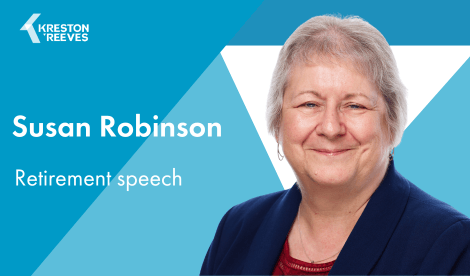VAT on disbursements
Whether or not to charge VAT on disbursements, both going forward and historically, has become a key area in the last couple of years, largely as a result of a case against Brabners LLP, a firm of solicitors specialising in conveyancing.
Many of you will be familiar with the case already, but as a brief bit of background, the case arose because of a difference in how HMRC and the firm were defining the word ‘disbursement’. HMRC argued that a true disbursement is one where the client received the benefit and the liability ends with the client. However, in the case of online search fees, in most instances solicitors are using the search results to provide a report to their client and, therefore, HMRC argue that VAT should have been added to these fees as it is ‘part and parcel’ of their service.
A further complication is added by the fact that HMRC have previously conceded that searches acquired via post could be treated as a true disbursement, and therefore there was no obligation to add VAT. This is despite the fact that the search results, whether acquired electronically or via post, are used for exactly the same service.
Local authorities have been required to apply VAT to online search fees since early 2017, removing the ambiguity as a result, but HMRC can still assess for under-declared VAT for periods up to 4 years ago. Whilst there is no absolute definitive answer on whether firms should be adjusting for historical online search fees, it is recommended that both the Law Society’s and HMRC’s guidance is consulted to arrive at a decision, and that this is applied consistently. This would be important should the Revenue raise an assessment.
Whilst this particular case is relevant to the legal sector, it is clear that HMRC are targeting the professional sector as a whole, therefore it is essential that all firms review their treatment of disbursements and are able to justify their reasoning for any treatment. Fundamentally, if a firm is acting as agent for their client, and are simply passing the results on, there is no obligation to charge VAT. For instance, a firm of architects paying for planning fees on behalf of a client or solicitors paying stamp duty in relation to a conveyancing matter.
The treatment of disbursements is a particularly complicated area, which may result in large additional VAT liabilities if not considered carefully on a case-by-case basis. Therefore, it is imperative that time is taken to familiarise yourself with the legislation and guidance, or to consult with VAT specialists if in any doubt.
Kreston Reeves have a specialist VAT team that can help. For further information on the above, please speak with Rupert Moyle or Colin Laidlaw using the contact details here.
We periodically send out complimentary newsletters, click here to receive yours.
Share this article
Related news and insights
Subscribe to our newsletters
Our complimentary newsletters and event invitations are designed to provide you with regular updates, insight and guidance.
You can unsubscribe from our email communications at any time by emailing [email protected] or by clicking the 'unsubscribe' link found on all our email newsletters and event invitations.
This site is protected by reCAPTCHA and the Google Privacy Policy and Terms of Service apply.












